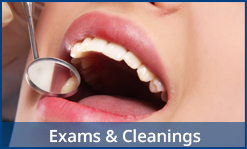Many people have experienced temporary ringing, humming, or buzzing in the ear even when there is no external sound to create the sensation. Maybe you had if for a few days after attending a loud rock concert or when the football hit you in the side of the head during a pickup game at the park.
When these sensations are persistent or recurring, you could be suffering from a condition known as tinnitus. While causes aren’t always known and it’s possible that you could be stuck with the condition, there are also several common reasons for the onset of tinnitus, as well as a variety of treatment options to explore.
How does your dentist fit into the picture? Tinnitus is often linked to trauma, obstructions in the middle ear, pressure in the inner ear, or other factors that affect the function of the eardrum. In some cases, tinnitus could be linked to your teeth, or more specifically, tooth trauma, oral health issues, or perhaps even dental procedures. If this is the case, there’s a good chance your tinnitus is treatable, with the help of your dentist.
Buzzing Drill, Ringing Ear?
In some cases, having dental work done could cause you to experience symptoms of tinnitus, or exacerbate an existing problem. The whine and buzz of the dental drill is not only close to your ear when work is being done, but the bone of your tooth could actually amplify the transmission of sound to your sensitive inner ear and the cochlea. Luckily, any residual buzzing following your treatment should naturally diminish soon after.
If you have tinnitus and you know you will have to undergo a procedure that involves extensive drilling, talk to your dentist about the possibility of drilling in short bursts and taking breaks, drilling for a few seconds and then stopping for a few seconds. This could help to ensure that the drill doesn’t trigger existing tinnitus.
Tooth Trauma
Issues like abscessed teeth and impacted wisdom teeth can cause you all kinds of pain and discomfort, including the onset of tinnitus. The good news is there’s a simple solution. When you treat these conditions you’ll likely notice a significant improvement to tinnitus symptoms in the process.
Abscesses may require extensive treatment, so it could take a while for tinnitus to subside, but impacted wisdom teeth can be removed and the area can heal relatively quickly, relieving pressure and reducing tinnitus. Other tooth trauma, from a car accident or sporting injury, for example, could also result in tinnitus. In such instances, the hope is that it will fade with treatment and recovery.











